Nakayama is in between Narita And Haneda International Airport
<クッキーについての同意並び欧州居住者向けプライバシーポリシー>
中山・下総・散歩道
Hachiman Jinja Shrine and the Poet Hakushu Kitahara
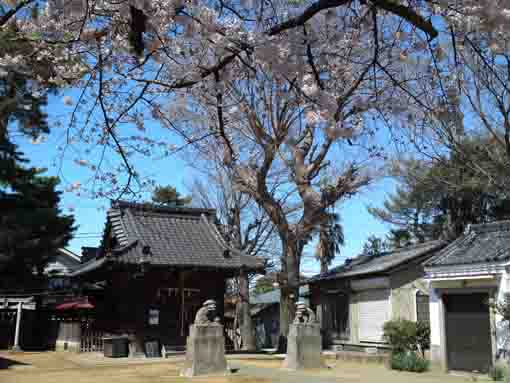
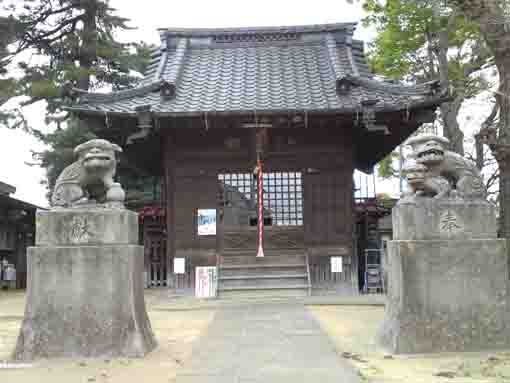
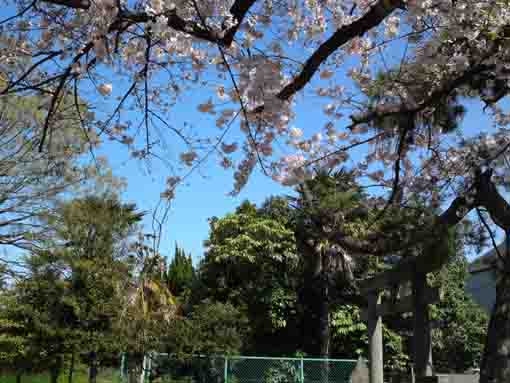
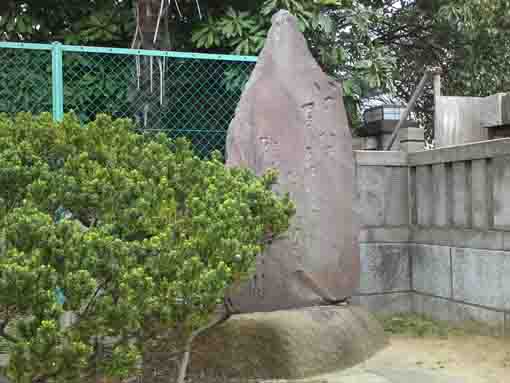
Hachiman Jinja in Kitakoiwa Edogawaku is a small shrine standing very close to the bank of Edogawa River. It has a stone tablet with a tanka poem by a famous poet in early 20th century Hakushu Kitahara living this town in Taisho era on its surface on the right of its torii gate. In spring, cherry blossoms bloom and welcome visitors friendly. Hachiman Jinja is the small shrine that tells culture and tradition of this area. Why don't you visit it?
Hachiman Jinja Shrine in Kita Koiwa
Hachiman Jinja
Hachiman Jinja Shrine in Kita Koiwa dedicates Homdawake no Mikoto, and Uka no Mitama no Mikoto is dedicated on the left of the main hall. There are no records when it was built, but it was appeared on the records edited in 1695.■ The statue of Jizo Bosatsuzo Koshinto (1864 is on the back)
It is a cultural asset registered by Edogawaku.
This statue of Jizo was called Mitani Jizon because it was in Mitani area that is famous for Hakushu Kitahara having lived in. Now the Jizo is dedicated in the business office on the right of the main hall. According to the letters on the back of the sculpture, it was built for the ceremony for the Koshin day in 1658. the statue of Koshinto was built by the supporters of Koshin beliefs that an insect called 'Sanshi' usually live in human bodies tell their sins to the god in heaven one night in the sixty days called Kashin Nighit, so the supporters had not sleep in the night to avoid the Sanshi leaving out of them.
■the Stone Tablet with a tanka poem by Hakuchu Kitahara on its surface
This stone tablet was built in 1956 by the villagers. It stans on the right of the torii gate.
March 1982
Edogawaku Board of Education
八幡神社門前案内板より
The Stone Tablet with a tanka poem by Hakuchu Kitahara on its surface
- いつしかに (itsushika ni / someday)
- なつのあわれとなりにけり (natsu no aware to narini keri / it would became sorrows in summer)
- 乾草小屋の 桃色の月 (kanso koya no momoiro no tsuki / the peach colored moon over the hay hut)
In 1961, people in Kitakoiwa built this stone tablet in Hachiman Jinja Shrine since they thought of the days of Hakushu living in the farm near Edogawa river and being fond of the land.
March 2002
Edogawaku Board of Education
八幡神社鳥居脇北原白秋歌碑脇案内板より
出典・抜粋・引用および参考
八幡神社門前案内板より
八幡神社鳥居脇北原白秋歌碑脇案内板より
The Access and the Location to Hachiman Jinja in Kita Koiwa
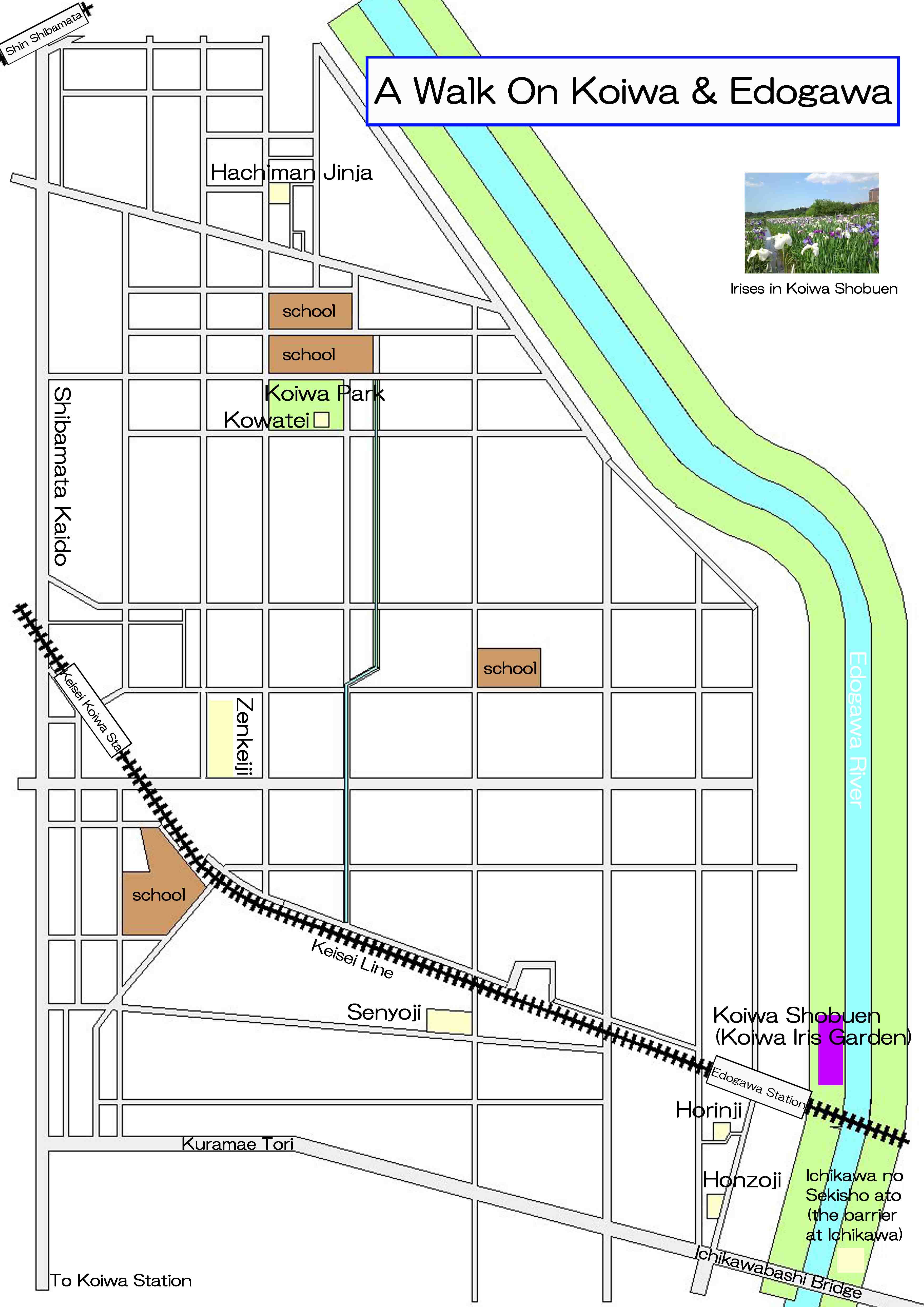
The map to the noted spots near Keisei Koiwa and Edogawa Station
PDF of the landmarks near Keisei Koiwa and Edogawa StationHachiman Jinja Shrine in Kita Koiwa
- Hachiman Jinja Shrine in Kita Koiwa has great accessibilities from both Narita and Haneda International Airport.
- From Narita International Airport, take Keisei-line and get off Edogawa or Keisei Koiwa Sta. Or take Narita Sky Access-line and get off at Shin Shibamata Sta. Take minimally 50 minutes from Narita Airport.
- From Haneda International Airport, take Keikyu-line bound to Narita, and get off Keisei Koiwa or Edogawa Sta. Or transfer the line at Aoto or Takasago Sta to Narita Sky Access-Line bound to Narita International Airport, get off Shin Shibamata Sta.
- Take 12 minute walk from Keisei Koiwa Sta, take 22 minute walk from Edogawa Sta, and take 8 minute walk from Shin Shibamata Sta.
- 8-23-19 Kitakoiwa, Edogawa-ku, Tokyo
The Noted Spots Connecting With Hakushu Kitahara
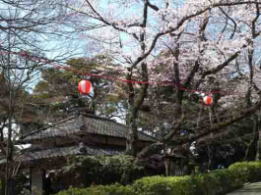
Shiensohsa in Satomi Park
The housse of Hakushu Kitahara preserved in Satomi Park.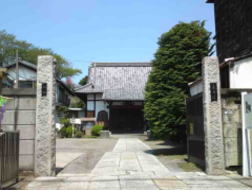
Kameiin Temple
Once Hakushu Kitahara lived in this temple.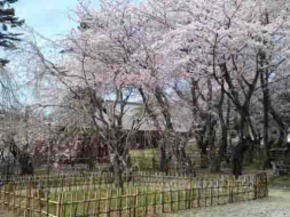
Mamasan Guhoji Temple
The noted spot of cherry trees and colored lives stands behind Kameiin Temple.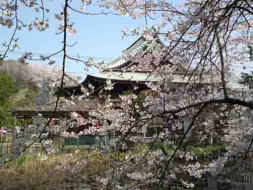
Tekona Reishindo Hall
Tekona the famous lady appears in Myriad Leaves is dedicated in this temple.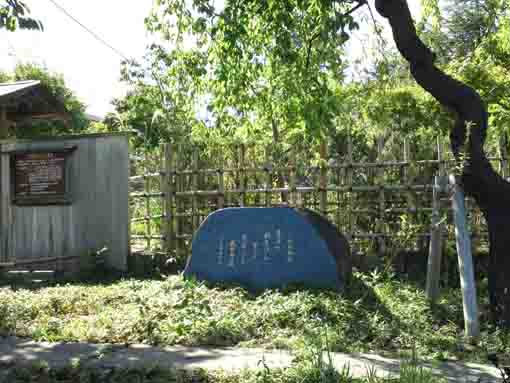
Kowatei for Tea Ceremony
Hakushu Kitahara lived in this town and his manument stands beside it.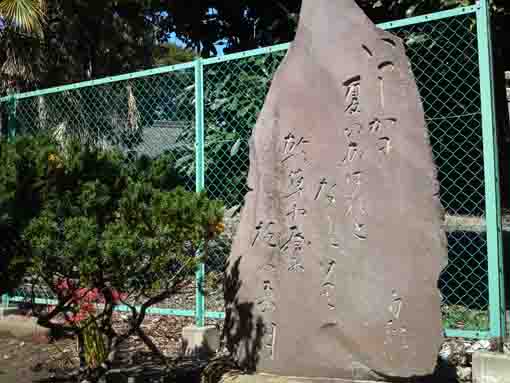
Hachiman Jinja in Kitakoiwa
Hakushu Kitahara lived near it and his monument stands beside its torii gate.- 広告 Advertisement -
